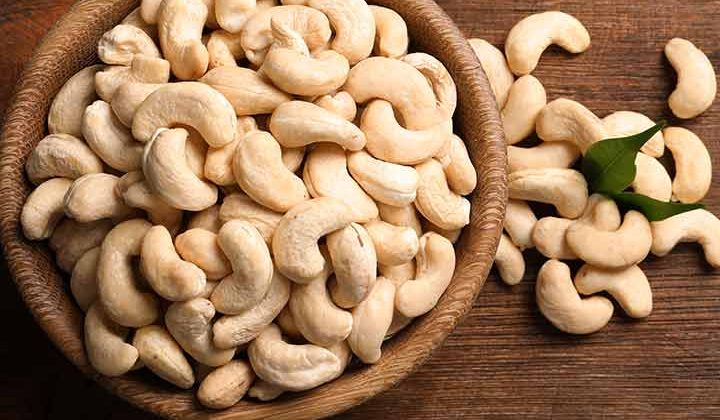
Cashews, those delightful kidney-shaped nuts, are more than just a tasty snack. Bursting with flavor and packed with essential nutrients, cashews have earned their place as a beloved ingredient in countless culinary creations.
But did you know that these creamy nuts also offer a wealth of health benefits?
In this post, we delve into the reasons why cashews are not only delicious but also a nutritional powerhouse that can positively impact your well-being.
Cashews have been a popular snack and ingredient in many dishes for centuries. But did you know that these kidney-shaped nuts are also packed with remarkable health benefits?
From improving heart health to boosting brain function, cashews offer an array of nutritional marvels that make them a must-have in your diet.
One of the most significant health benefits of cashews is their rich nutrient profile.
The nuts are loaded with protein, fiber, healthy fats, vitamins, minerals and antioxidants that work together to keep your body healthy and strong.
For instance, they contain high levels of magnesium which plays a vital role in regulating blood pressure and preventing heart disease.
They also contain copper which supports bone health and iron absorption as well as vitamin K that helps promote blood clotting.
Another notable benefit of cashews is their ability to aid weight loss.
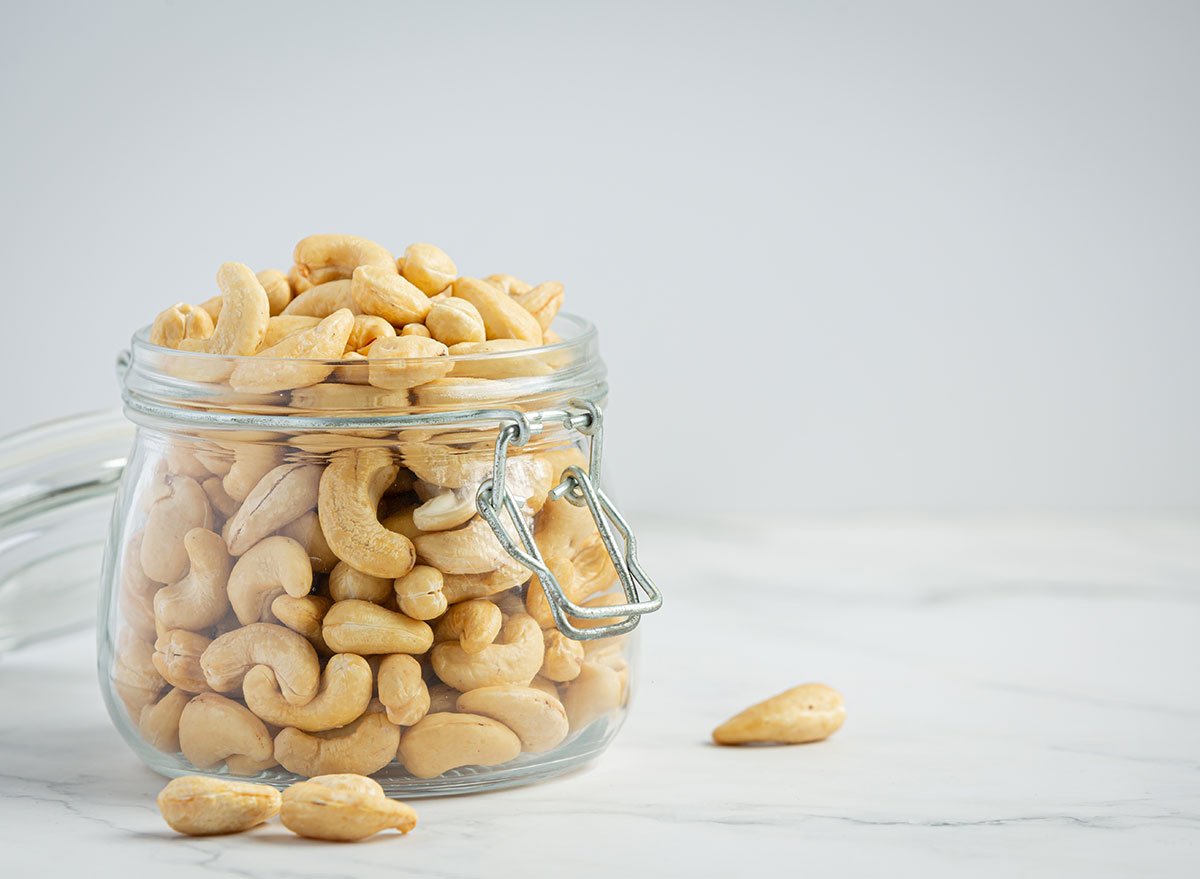
Before jumping into how eating cashews can potentially affect your body and overall health in the short and long term, here’s a breakdown of this nut’s nutritional profile.
According to the U.S. Department of Agriculture, a one-ounce (28-gram) serving of raw cashews can supply your body with about:
- 157 calories
- 12.4 grams of fat
- 7.8 grams saturated fat
- 8.6 grams carbohydrates
- 0.9 grams fiber
- 1.7 grams sugar
- 5.2 grams protein
- 1.9 milligrams iron (11% DV)
- 82.8 milligrams magnesium (20% DV)
- 1.6 milligrams zinc (21% DV)
- 9.7 milligrams vitamin K (8% DV)
- 5.6 µg of selenium (10% DV)
10 effects of eating cashews
To help us get to the bottom of whether or not cashews are actually good for you, we consulted a few dietitians for their expert insight and did a little digging into the scientific research around this nut and its nutritional properties. From better blood sugar control to a healthier heart, here are some potential benefits of eating cashews.
1. Cashews can support a healthy immune function
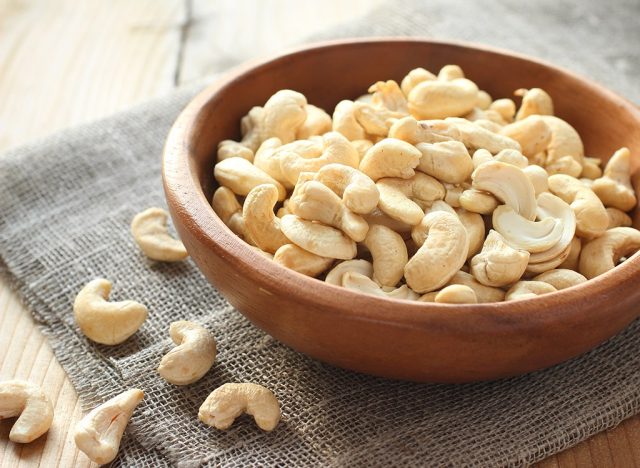
“One ounce of cashews provides 10% of the daily recommended amount of iron. This mineral contributes to the normal function of the immune system,” Toby Amidor, MS, RD, CDN, FAND, award-winning nutrition expert and Wall Street Journal bestselling author of Up Your Veggies: Flexitarian Recipes for the Whole Family, tells Eat This, Not That!
2. They may help reduce inflammation
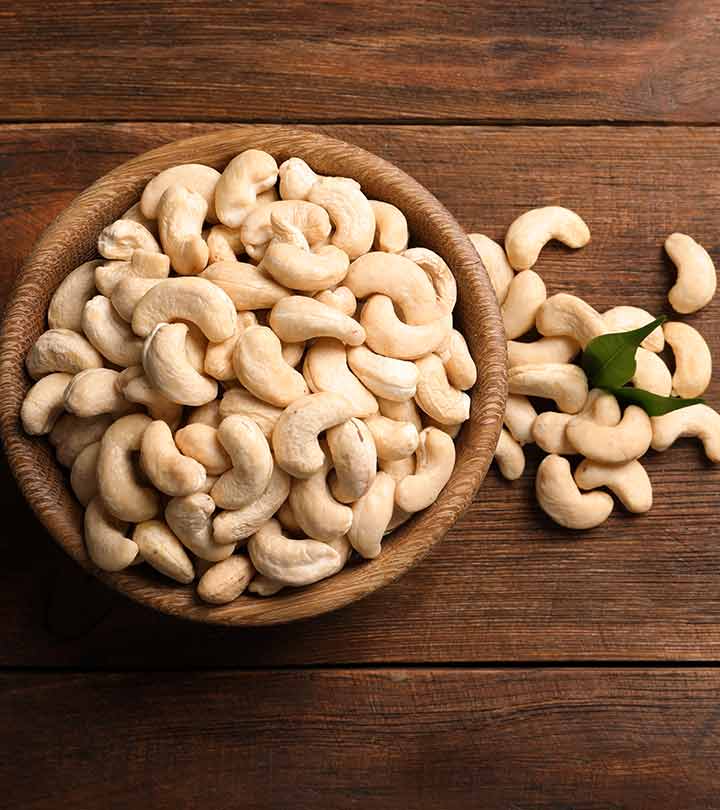
“Cashews are high in polyphenols and carotenoids, [which are] antioxidants that help reduce inflammation and could ultimately reduce the risk of several chronic diseases,” says Sarah Garone, NDTR, of A Love Letter to Food. “Research shows that roasted cashews are somewhat higher in antioxidants, so opt for a roasted variety for even more antioxidant potential.”
3. They promote bone health
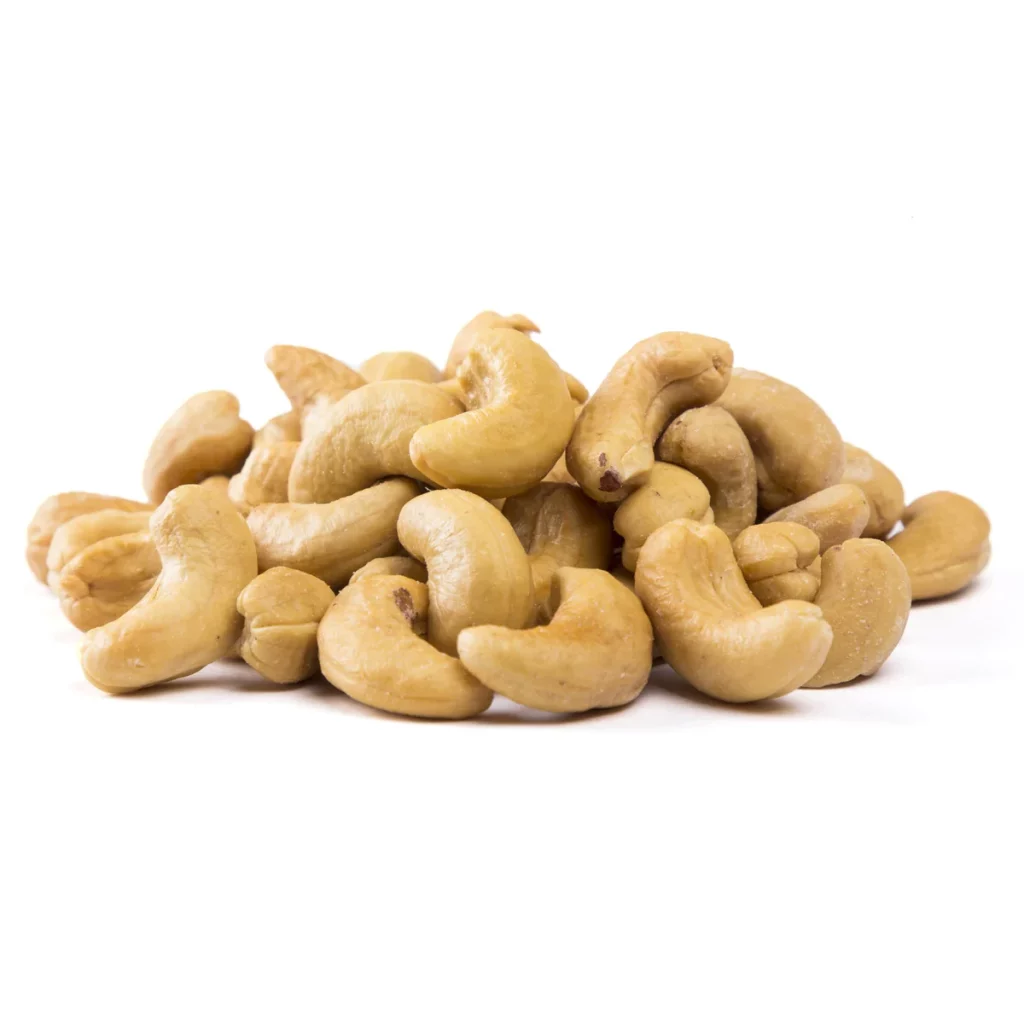
“One ounce of cashews provides 8% of the daily recommended amount of vitamin K,” says Amidor. Research shows that this vitamin can be key in protecting and maintaining strong, healthy bones.
“Calcium and vitamin D are certainly important nutrients for bone health, but the Bone and Health Osteoporosis Foundation also lists vitamin K as a nutrient important for bone health and recommends eating sources of vitamin K at every meal or snack,” adds Amidor.
4. Cashews can protect your cells from damage
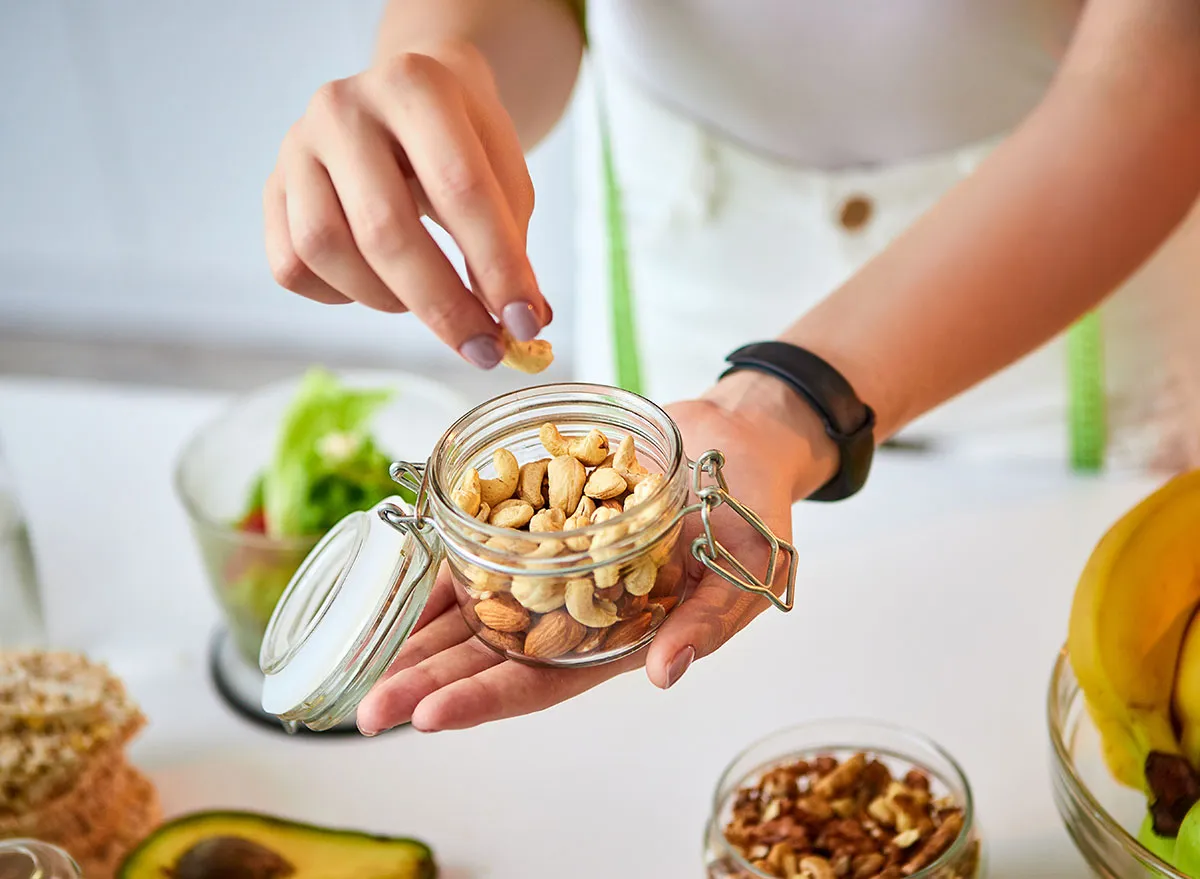
Nuts and seeds are well known for their impressive antioxidant content. Antioxidants are compounds that can neutralize damage-causing free radicals in your body, thus shielding your body from disease and reducing inflammation overall. Cashews, in particular, are an excellent source of two types of antioxidants: polyphenols and carotenoids. Note, however, that roasted cashews appear to have greater antioxidant activity than raw ones.
5. They are good for your eyes
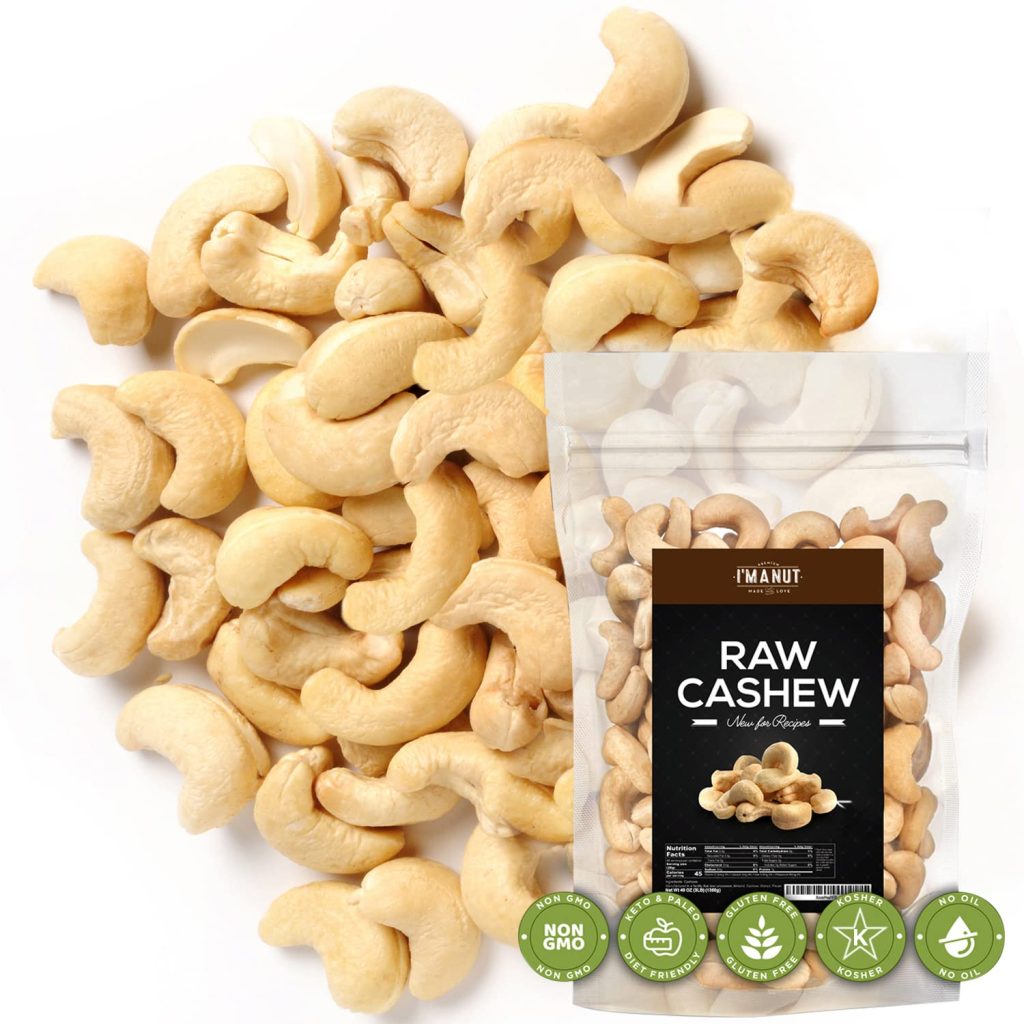
“Including cashews in your diet can help ensure that you are getting these essential nutrients for optimal eye health,” explains Trista Best, MPH, RD, LD, at Balance One Supplements. “Cashews are good for eye health because they are a rich source of antioxidants like lutein and zeaxanthin. These antioxidants are important for maintaining healthy vision and protecting the eyes from damage caused by free radicals. Studies have shown that a diet rich in lutein and zeaxanthin can help reduce the risk of age-related macular degeneration, cataracts, and other eye diseases.”
Additionally, research suggests that the antioxidant and anti-inflammatory properties of the polyphenols and carotenoids contained in cashews can also benefit eye health.
6. They support brain health
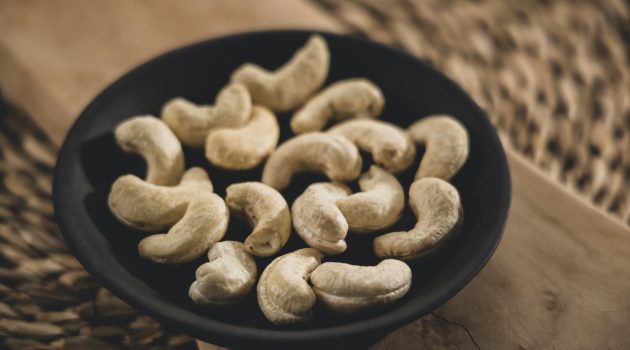
Cashews are good for brain health because they are rich in vitamin E, which is a potent antioxidant that helps protect brain cells from oxidative damage,” says Best. “Studies have shown that vitamin E may help reduce the risk of cognitive decline and Alzheimer’s disease. Cashews are also a good source of magnesium, which is essential for healthy brain function and can help improve mood and reduce symptoms of anxiety and depression.”
7. They may actually help with weight loss

Many people wrongly assume that nuts are a no-no when you’re trying to shed pounds since they’re a calorie-dense, high-fat food. But a 2017 study in Nutrients revealed that people who regularly munch on nuts are more likely to maintain a healthy weight than those who don’t. This could be because nuts are incredibly satiating—thanks to a powerhouse combo of protein, fiber, and fats—thereby promoting weight loss.
While cashews taste ultra-rich, you may be surprised to learn that they actually have slightly less fat and calories than many other popular nuts, like almonds, peanuts, and walnuts. One serving of cashews contains about 137 calories on average, but a 2019 study published in Nutrients found that the human body may only absorb around 84% of these calories—because some of the fat they contain remains sealed within the nut’s fibrous wall.
8. Eating cashews could help improve your cholesterol
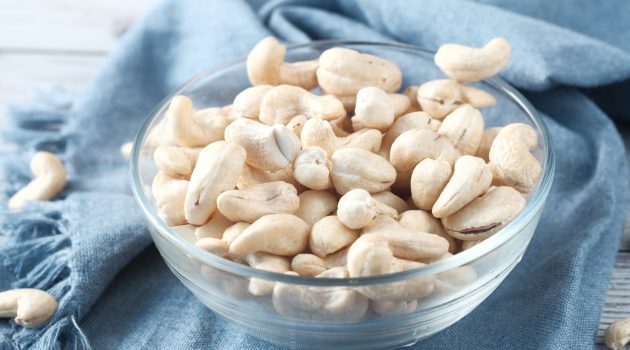
There are two types of cholesterol: LDL, the kind that causes harmful fatty buildups in your arteries, and HDL, the kind that can actually protect your heart by carrying LDL cholesterol away from the arteries and toward the liver.
Ideally, you want your ratio to show lower levels of LDL cholesterol and higher levels of HDL—that’s where cashews come in. A 2017 study in The American Journal of Clinical Nutrition found that incorporating cashews into your diet can decrease your “bad” LDL cholesterol. Not only that, but a 2018 study in the Journal of Nutrition showed that a diet rich in cashews increases levels of “good” HDL cholesterol.
RELATED: 6 Eating Habits to Get the Healthiest Cholesterol Possible
9. They may help reduce your blood pressure

More than 100 million adults in America—or nearly half the adult population—have high blood pressure. According to a 2019 study in Current Developments in Nutrition, however, eating cashews is linked to lower blood pressure. Cashew consumption was also linked to lower levels of triglycerides—a type of fat in the blood that can increase your risk of stroke, heart attack, and heart disease when levels are high.
Keep in mind, though, that not all cashews are created equal in this regard. Many packaged cashews come salted, and foods with excess salt have been linked to high blood pressure.
10. They can give your heart health an overall boost

Heart disease is the leading cause of death in the U.S.—above stroke, respiratory diseases, diabetes, and Alzheimer’s combined. Fortunately, a 2007 review published in the British Journal of Nutrition found that the risk of heart disease was 37% lower for those who eat nuts more than four times a week.
You may have already known that nuts can benefit your ticker, but cashews, specifically, may hold an advantage here. A 2018 study published in the Journal of Nutrition found that when people with type 2 diabetes ate 30 grams of raw, unsalted cashew nuts daily for 12 weeks, they experienced decreased cardiovascular risk factors, including reduced blood pressure and an uptick in HDL (or “good”) cholesterol. The likely reason why cashews are associated with a reduced risk of cardiovascular disease is that they’re a good source of monounsaturated and polyunsaturated fatty acids, which can help to reduce LDL cholesterol levels.

It probably goes without saying that what you eat can play a significant role in your body’s ability to keep your blood sugar levels in check. Adding cashews to your diet could significantly impact your blood sugar, whether you have diabetes or prediabetes.
Conclusion
In conclusion, cashews are not only a delicious snack but also a nutritional powerhouse. They are rich in nutrients like protein, fiber, healthy fats, vitamins, and minerals that offer numerous health benefits.
These include reducing the risk of heart disease, promoting bone health, boosting immunity, aiding in weight loss, and preventing cancer.
With their versatility and tasty flavor profile, incorporating cashews into your diet is easy and enjoyable.
So next time you reach for a snack or add some crunch to your meal, consider the remarkable health benefits of cashews. Start enjoying the benefits today!
